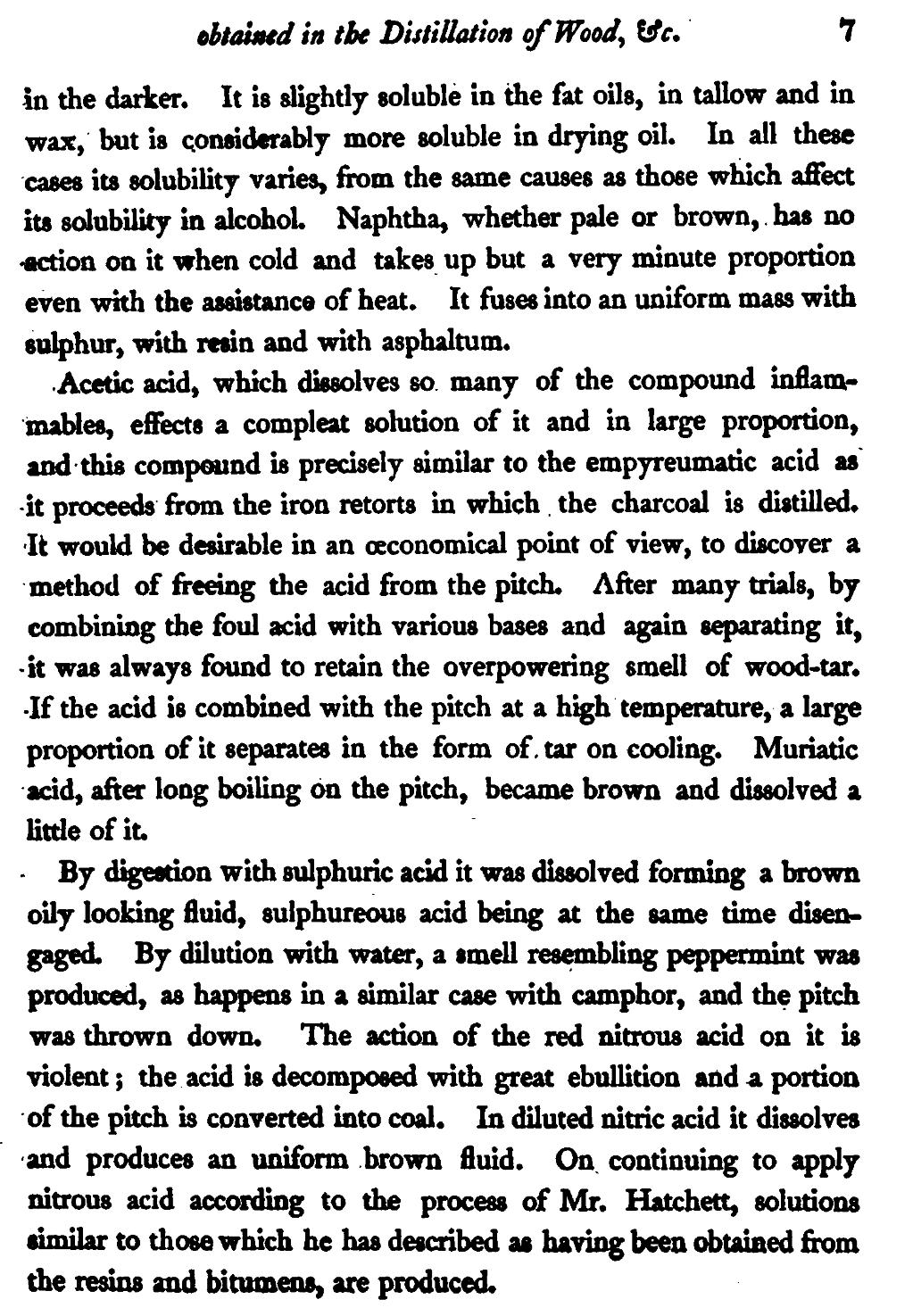in the darker. It is slightly soluble in the fat oils, in tallow and in wax, but is considerably more soluble in drying oil. In all these cases its solubility varies, from the same causes as those which affect its solubility in alcohol. Naphtha, whether pale or brown, has no action on it when cold and takes up but a very minute proportion even with the assistance of heat. It fuses into an uniform mass with sulphur, with resin and with asphaltum.
Acetic acid, which dissolves so many of the compound inflammables, effects a compleat solution of it and in large proportion, and this compound is precisely similar to the empyreumatic acid as it proceeds from the iron retorts in which the charcoal is distilled. It would be desirable in an economical point of view, to discover a method of freeing the acid from the pitch. After many trials, by combining the foul acid with various bases and again separating it, it was always found to retain the overpowering smell of wood-tar. If the acid is combined with the pitch at a high temperature, a large proportion of it separates in the form of tar on cooling. Muriatic acid, after long boiling on the pitch, became brown and dissolved a little of it.
By digestion with sulphuric acid it was dissolved forming a brown oily looking fluid, sulphurous acid being at the same time disengaged. By dilution with water, a smell resembling peppermint was produced, as happens in a similar case with camphor, and the pitch was thrown down. The action of the red nitrous acid on it is violent; the acid is decomposed with great ebullition and a portion of the pitch is converted into coal. In diluted nitric acid it dissolves and produces an uniform brown fluid. On continuing to apply nitrous acid according to the process of Mr. Hatchett, solutions similar to those which he has described as having been obtained from the resins and bitumens, are produced.
